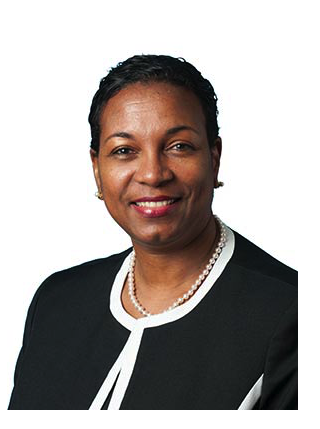by Randy Bennett
The entire disciplinary regime governing lawyers needs to be more “efficient and robust” says president of the Barbados Bar Association (BBA) Rosalind Smith-Millar.
While giving full support to Attorney General Dale Marshall’s recent revelation that changes were coming to the Legal Profession Act to make it easier to punish
attorneys-at-law who misappropriate their client’s funds, the president said it was overdue.
Moments after attending a ceremony last Friday where 32 new lawyers were admitted to the Bar, Marshall said Government was “bringing some much needed amendments to the Legal Profession Act so that we could more swiftly and more effectively deal with lawyers who run afoul of the code of conduct and in particular those who use their client’s monies.”
“The BBA welcomes recent comments by the Honourable Attorney General to the effect that legislation is coming to deal more effectively with attorneys-at-law who misappropriate clients’ funds. For many years, the BBA has advocated for a more efficient and robust disciplinary regime.
“The new legislation is not only timely but overdue. It is possible that recent cases have been the catalyst to bring the issue to the fore once again,” Smith-Millar said.
She recalled that in 2016 the BBA submitted feedback on a wide range of proposed changes to the Legal Profession Act, but noted that, “nothing came of that draft legislation”.
She said that draft and the recommendations had again been submitted to the Attorney General and the new Chief Justice Patterson Cheltenham for further consideration.
But Smith-Millar told Barbados TODAY the time had come for the BBA’s Disciplinary Committee to also be given more power.
She contended that the Bar should be given the power to hand down sanctions.
“The size of the Bar has grown significantly over the years since the enactment of the Legal Profession Act in 1972, but the size and composition of the Disciplinary Committee have not changed to keep up with the number of complaints being filed,” the president pointed out.
“Likewise, the time is long past for the Disciplinary Committee to have the power to do more than investigate complaints and recommend sanctions to the Court of Appeal. The BBA is of the view that the Disciplinary Committee should have the power to impose sanctions, with the practitioner having a right to appeal to a higher authority, and the more serious sanctions being reserved for the court to impose.”
She also suggested that laypersons be included in the process and for the necessary resources to be made available to the committee.
However, the president said she believed the power to disbar an attorney-at-law should remain in the hands of the Court of Appeal.
But she argued that once found guilty of a serious offence that lawyer should be automatically disbarred.
“The BBA believes that disbarment is a very serious sanction, and careful thought must be given to any proposal to transfer that power to any lesser body than the Court of Appeal as is presently the case. Whatever the outcome of that particular analysis, the disciplinary process from complaint to imposition of the sanction needs attention,” Smith-Millar said.
“We also believe that certain sanctions should be the immediate and automatic consequence of certain behaviours, e.g. conviction for serious crimes, once all reasonable appeals have been exhausted.”
(randybennett@barbadostoday.bb)




